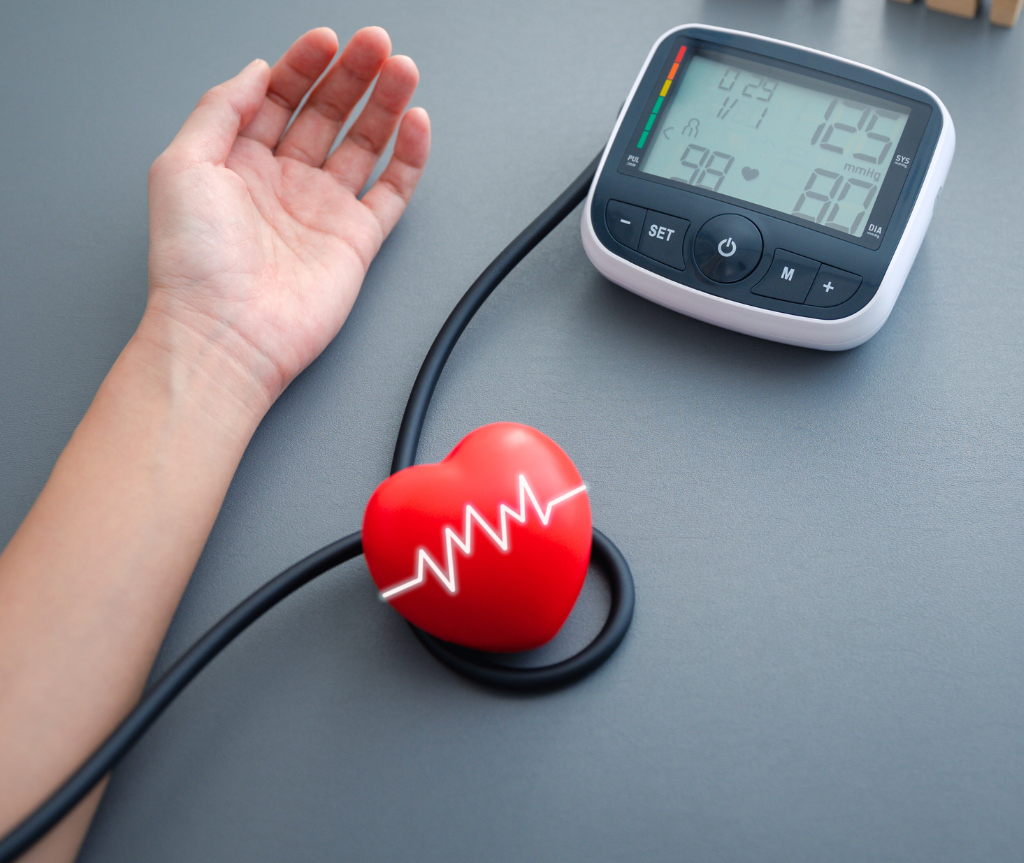If you’ve ever been told your blood pressure’s “a bit high,” you’re not alone. It’s one of those health issues that creeps up quietly — no pain, no warning — until suddenly your doctor’s mentioning medication. But here’s the encouraging part: there are natural ways to lower high blood pressure that can make a real difference. From mindful movement and stress reduction to smart food choices and better sleep, small, consistent changes can bring your numbers down — often as effectively as medication, and without the side effects.
Let’s explore the simple, evidence-backed habits that can help your numbers fall and your heart stay strong.
Understanding How Hypertension Develops
Think of your blood vessels as flexible garden hoses. Over time, if too much pressure builds up inside, those hoses begin to stiffen and crack. That’s essentially what happens with high blood pressure — your arteries lose their stretch.
Why does it happen? Usually, it’s a mix of things: too much salt, stress, lack of movement, or carrying a few extra kilos. The good news is that every one of those factors can be improved — naturally.
Here’s how.
1. Reduce Your Salt Intake
Salt makes your body hold onto water, which increases blood volume — and that extra volume puts pressure on your artery walls.
If you’re used to seasoning generously, start by cutting back slowly. Swap salt for herbs, garlic, or lemon juice. You’ll be amazed how your taste buds adapt in just a couple of weeks.
Aim for under 2,300 mg of sodium a day, and ideally closer to 1,500 mg. Your heart will thank you for it.
2. Follow the DASH Diet
The DASH diet (Dietary Approaches to Stop Hypertension) isn’t a fad — it’s one of the most studied eating plans in the world.
It’s full of foods that naturally relax your blood vessels: colourful vegetables, fruits, whole grains, and low-fat dairy. These are rich in potassium, magnesium, and calcium — three nutrients that help balance blood pressure.
In fact, sticking to the DASH plan can lower your numbers by up to 11 mmHg in just a few weeks.
3. Move Your Body More Often
Exercise doesn’t have to mean gym memberships or marathons. Even a brisk walk for 30 minutes a day helps your heart pump more efficiently, easing pressure on your arteries.
Try walking after dinner, dancing around the kitchen, or cycling with friends — anything that gets your body moving. After a month or so, you’ll likely notice better energy and a calmer pulse.
4. Keep an Eye on Your Weight
Extra weight makes your heart work overtime. The encouraging part? You don’t need dramatic change to see results.
Losing just 5–10% of your body weight can lower blood pressure significantly. That’s the equivalent of going down one clothing size — not a total overhaul. Focus on consistency, not perfection.
5. Calm Your Stress Response
When you’re stressed, your body releases hormones like cortisol that tighten blood vessels. Over time, this keeps your pressure high.
Start with small daily pauses — a few deep breaths before you open your email, a quiet minute before bed, or five minutes of stretching.
Even short moments of calm tell your body, “I’m safe.” And that message alone can begin to lower blood pressure.
6. Rethink Alcohol Habits
A glass of wine or a beer can be relaxing — but too much alcohol has the opposite effect. It raises blood pressure and interferes with sleep.
Keep it moderate: one drink a day for women, two for men. And remember, having alcohol-free days each week helps your blood pressure — and your energy — stay balanced.
7. Say Goodbye to Smoking
Every cigarette temporarily tightens your blood vessels and robs your blood of oxygen. Quitting reverses that damage faster than most people realise.
Within weeks, your circulation improves; within months, your heart attack risk drops dramatically. If you need help quitting, reach out — this single step has the biggest payoff for your heart.
8. Add More Potassium to Your Plate
Potassium helps your body flush out excess sodium and keeps your blood vessels relaxed.
Think bananas, spinach, lentils, sweet potatoes, and avocados — all delicious, simple ways to boost your intake. Your daily goal: roughly 3,500–4,700 mg from food.
If you’re on kidney medication, check with your doctor first before increasing potassium.
9. Watch Your Caffeine
That morning coffee gives you energy — but it might also cause a temporary spike in blood pressure, especially if you’re sensitive.
Try tracking how your readings respond after caffeine. If you notice a jump, switch to half-caf or alternate with herbal tea. Balance is key.
10. Track Your Progress
Your blood pressure changes throughout the day — after meals, during stress, even with sleep. Keeping an eye on it at home helps you see what’s really working.
Use a simple upper-arm digital monitor, record your readings, and share them with your doctor. Watching your numbers improve can be the motivation you need to keep going.
The Bottom Line
Managing high blood pressure doesn’t have to mean living in fear or relying only on medication.
It’s about taking small, steady steps — eating smarter, moving regularly, and finding calm in your day.
Each choice adds up to a stronger heart and more energy for the things you love.
So tonight, maybe skip the takeaway, take a short walk, and breathe deeply before bed. Those tiny shifts are how lasting health begins.



